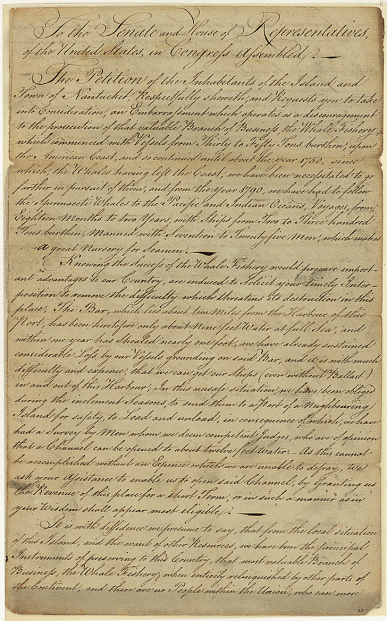Until fairly recently, social media has been seen as experimental and outside the realm of the essential work of our agency. Today that is simply no longer the case. Smart use of social media is now mission-critical to our agency. As the agency charged with advising Federal Agencies and the White House on the records … Continue reading Join the Chorus
Category: Social Media
iRevolution
The National Archives keeps looking for ways to work with other agencies to spark citizen engagement with our records. Our most recent project is the Document Your Environment contest for students, which we co-sponsored with the Environmental Protection Agency. We invited students aged 13 and older to explore some of the nearly 16,000 photos in … Continue reading iRevolution
Together We Can Do It!
Today we launch the Citizen Archivist Dashboard (http://www.archives.gov/citizen-archivist/) and encourage you to get involved in elevating the visibility of the records of the United States. Did you know that many grade school children aren’t taught cursive handwriting anymore and can’t read cursive? Help us transcribe records and guarantee that school children can make use of … Continue reading Together We Can Do It!
A Tool for Transformation
During the transformation planning process last year, we began using a variety of social media tools to invite staff discussion and participation in transforming the agency. Staff participation has been and continues to be critical in providing new ideas as well as feedback for our transformation initiatives. As we continue to work on transforming the … Continue reading A Tool for Transformation
What’s Next?
Access to records in this century means digital access. For many people, if it is not online, it doesn’t exist. The use of social media to increase access is the new norm. NARA has been going after innovative tools and projects that increase digital access to our records, including projects that invite public participation. We … Continue reading What’s Next?
The Wisdom of the Crowd
On June 15th we launched our tagging feature on the Online Public Access (OPA) prototype in another “citizen archivist” venture. Convinced that our users know a lot about the records we are stewarding, this is an opportunity to contribute that knowledge. As you search the catalog, you are invited to tag any archival description, person, … Continue reading The Wisdom of the Crowd
GLAMorous
According to Alexa.com, the internet traffic ranking company, there are only six websites that internet users worldwide visit more often than Wikipedia: Google, Facebook, YouTube, Yahoo!, Blogger.com, and Baidu.com (the leading Chinese language search engine). In the States, it ranks sixth behind Amazon.com. Over the past few years, the National Archives has worked with many … Continue reading GLAMorous
Crowdsourcing and Citizen Archivist Program
At the National Archives, we’re always trying to think of new ways to make our historical records more accessible to the public. We have only a small fraction of our 10 billion records online, so it’s clear we’ve got to get creative. It’s vital that we learn how other institutions address this challenge. One approach … Continue reading Crowdsourcing and Citizen Archivist Program
Sunshine Week 2011
This week, public interest groups, media organizations, government agencies, and citizens celebrate Sunshine Week and the Annual Freedom of Information Day. As part of Sunshine Week the White House has launched a new "Good Government" portal as a resource for citizens. At public events and congressional hearings this week, leadership of the National Archives -- … Continue reading Sunshine Week 2011
Celebrating 10 Years of Wikipedia
I'm a big fan of Wikipedia. It's often the first place I go for information. According to a recent Pew Internet report, I'm also not alone. Forty-two percent of all Americans also turn to Wikipedia for information online. Every month, almost 80 million people visit Wikipedia and more than 91,000 active contributors have worked on … Continue reading Celebrating 10 Years of Wikipedia








